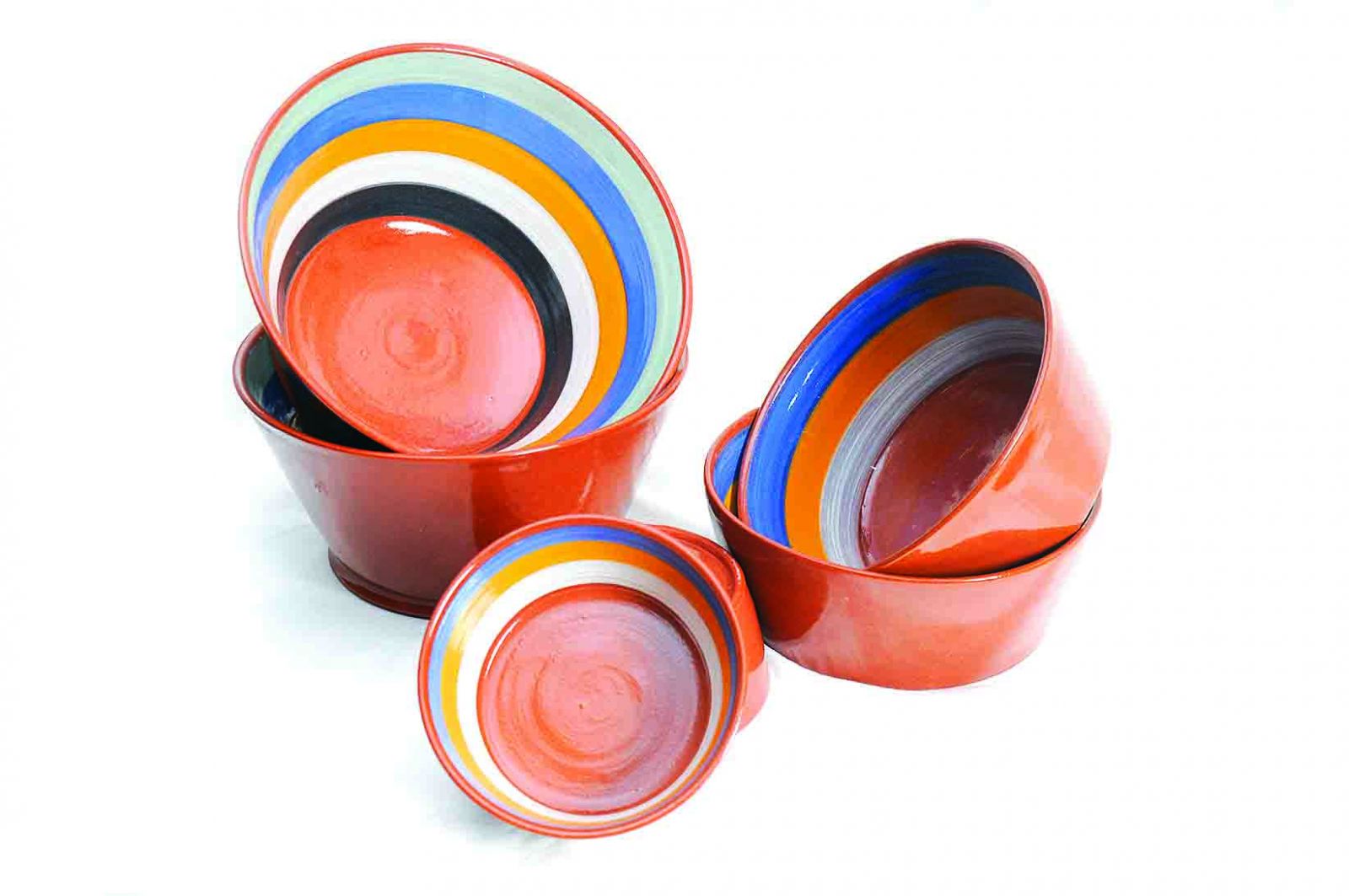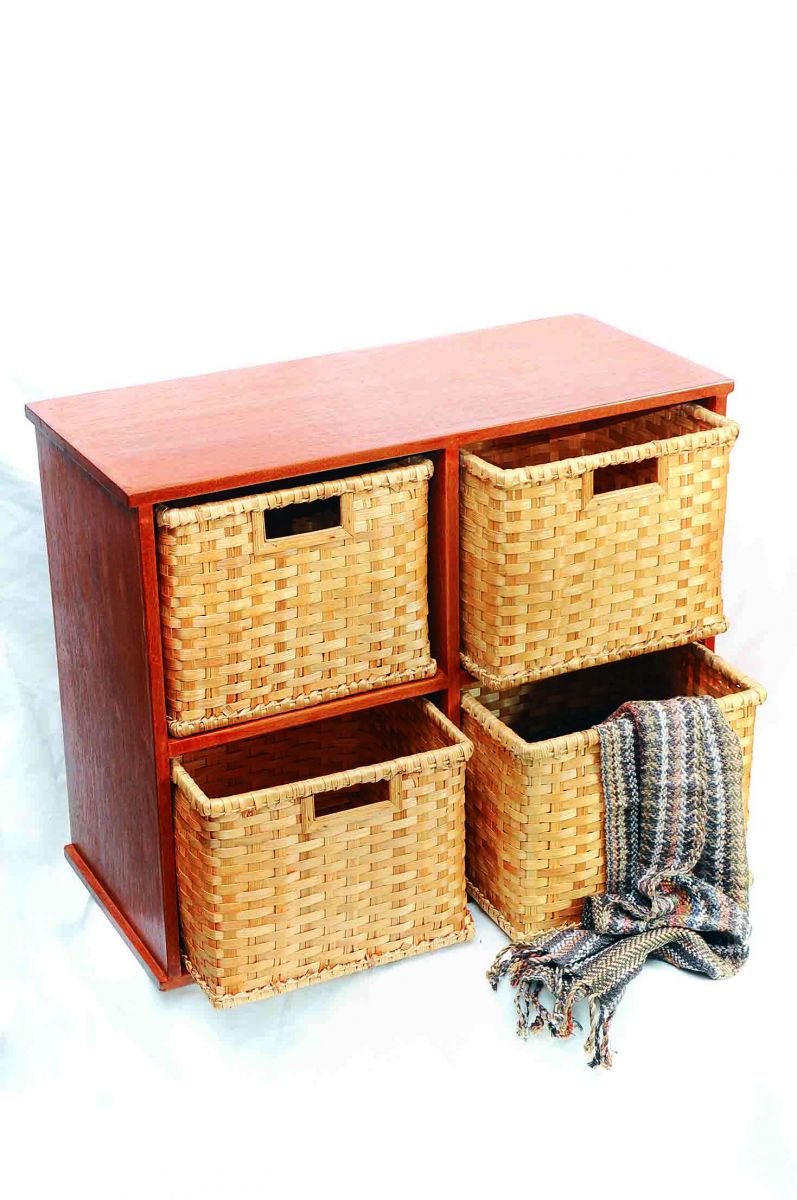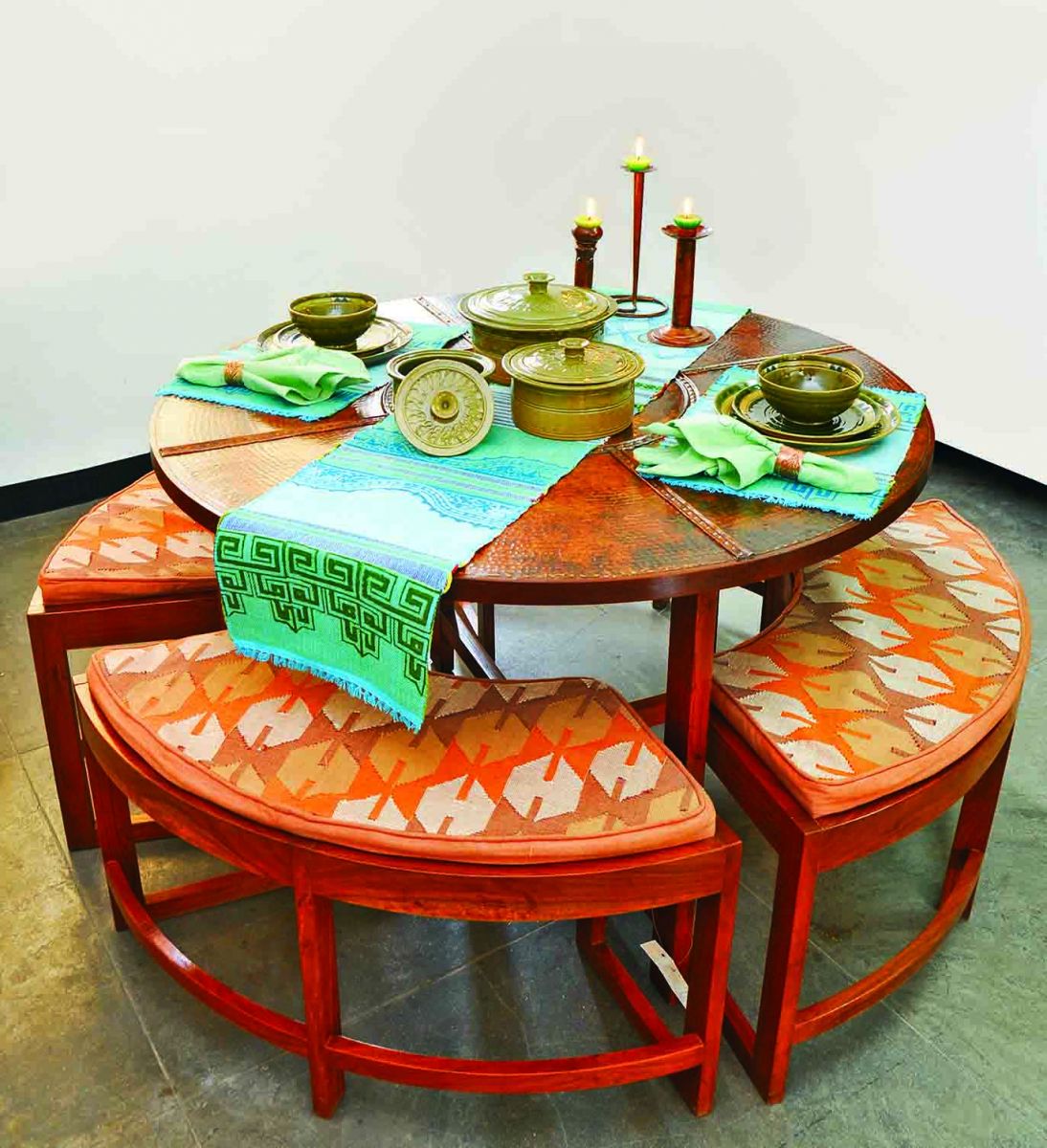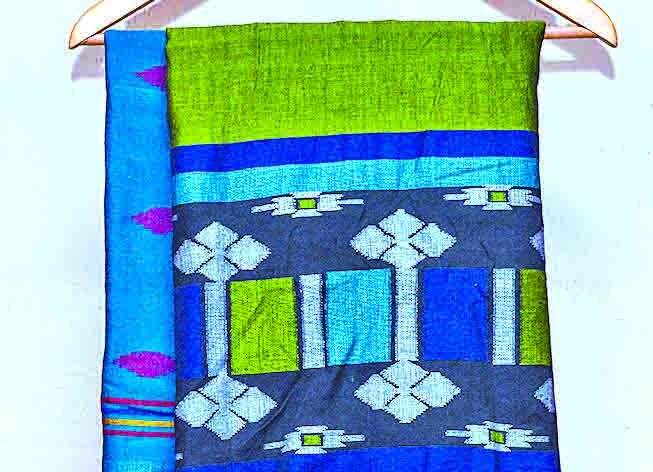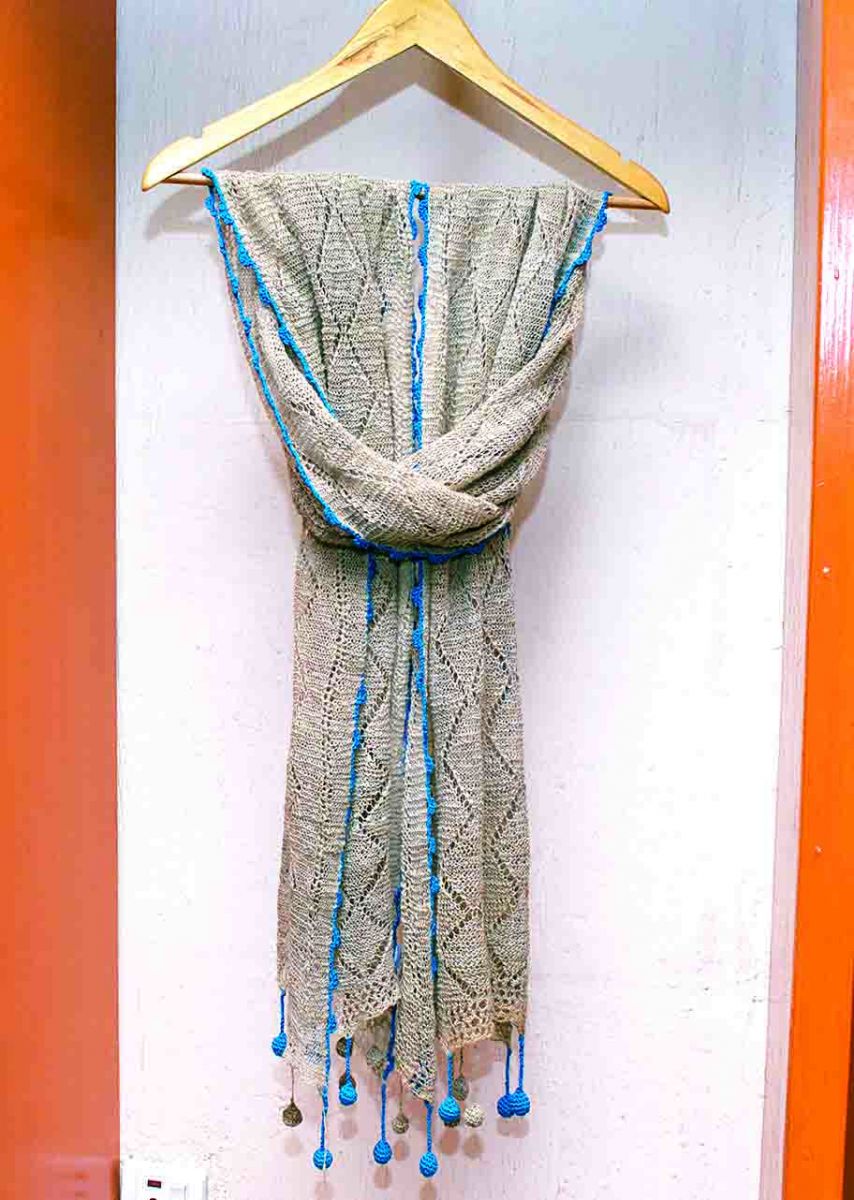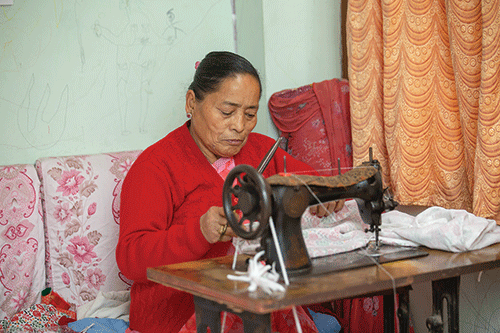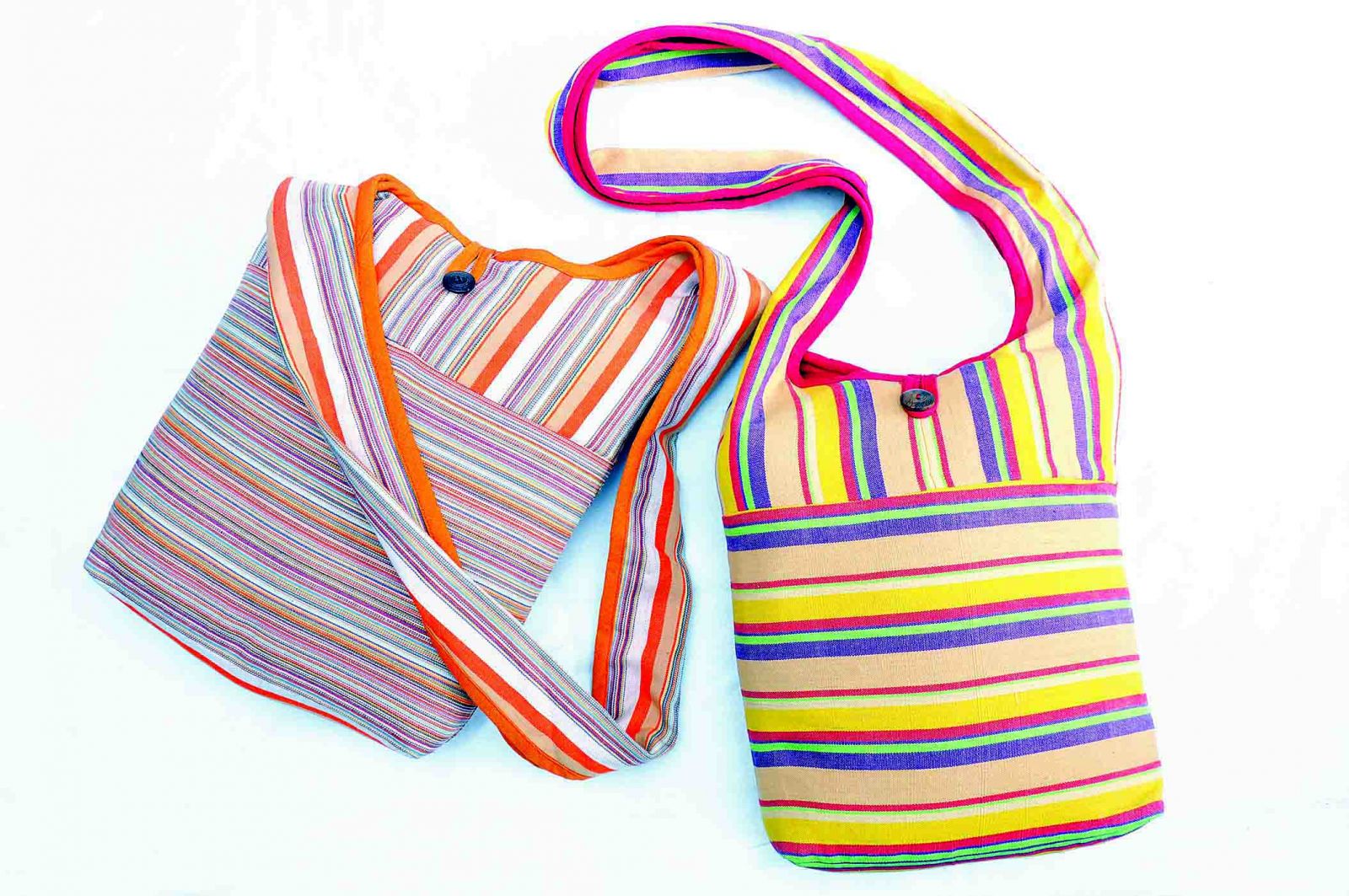
Ethnicity and Empowerment in Every Weave
Nepali handicrafts have an identity of their own, and are special. So are the women who craft them.
Domestic demand for handicraft is still low. Why? Nepali handmade products are of high quality and unique designs, and they help to financially uplift a great number of hereto deprived women.
At places like Sabah, Dhukuti (Association of Craft Producers), Mahaguthi, and Sana Hastakala, you can purchase a wide range of fashion-wear designed and handmade by women of Nepal. You can also buy pillow cases, quilt covers, sling bags, ceramic cups and bowls, and silver jewelry, among other things. In a country where Westernization is rampant, these products are not just made, but also designed with Nepali heritage, and marketed by the women themselves. The goods available are second to none in terms of quality. They are a symbol of our heritage and our culture. Importantly, they symbolize hope and aspiration for the many women who work there. Alas, Nepal is no country of handicraft consumers, but who produces the crafts? Are the people of Nepal actually reluctant to buy craft?
Undoubtedly, Nepal is a country that is rich in cultural heritage and natural resources. Lamentably, it is also a country infested with corruption, bad governance, and instability, where large scale industrialization is somewhere in the distant future. The economy of the country is stagnant, as is the standard of living, and it is common practice for the people to leave the country for work abroad. However, there are people who are either unfit to emigrate, or do not go for reasons best known to them, or are just not willing to follow suit. Most of them, those who stay back, land up with jobs in the country itself. Nepal being a patriarchal society, it is comparatively easy for men to land odd jobs. Again, it is the women who have to bear the cost of an underdeveloped economy.
From the distant past, Nepal has always enthralled the outside world with their craft work. In recent years, social business organizations such as SABAH Nepal, Association of Craft Producers (ACP) – Dhukuti, Mahaguthi, and Sana Hatakala, among many others, have emerged to uplift and empower women. These organizations do not just school women in the aspect of craft-making, but also guide them to become better parents, leaders, and stronger and more determined humans capable of facing any difficulty in life.
|
|
SABAH Nepal
A social-business organization founded in 2008 with the support of SAARC Development Fund (SDF), it has now emerged as an independent entity that empowers 2500 women economically in 16 different districts. It offers a wide range of trainings—technical (related to textile craft and food processing), and non-technical (leadership, entrepreneurship development, and business counseling). After training, they join various groups that are known as ‘clusters’, which are spread all over Nepal, and are community-based business enterprises with well-equipped training and production facilities.
SABAH has a value chain managed by home based workers (HBW) for any products it offers. Starting with fabric designing and weaving, and concluding with designing of finished products and market linkages, they are all done in-house. Holistic business enterprises owned and operated by HBWs has given this organization lot of flexibility, making them a one-stop-solution for consumers seeking handmade Nepali products. One can, for instance, have a dress custom-made as per one’s size. One can also design one’s own product by choosing the fabric, color pallet, and the pattern one desires. Every fabric has unique design and color, and is definitely of high quality. Other than weaving, the organization also has hand-knitted items, fashion wear, and food products, among other things. They also have a consumer cooperative where the women can take collateral-free loans at low interest rates.
Association of Craft Producers (ACP) - Dhukuti
A leading local, not-for-profit, WFTO guaranteed Fair Trade organization serving Nepal since 1984, they purchase white un-dyed yarn from India, while all other processes are done indigenously in their in-house dying facility. Among the 700 women working here, the majority are in the age group of 35 to 40 years. They hail from many places of Nepal, with most being from Kirtipur and Thankot. The bulk of these weavers are indigenous weavers.
They have both community-based and home-based production structures. Being flexible and open to change in their manufacturing process, they offer a flexible program that encourages creative collaboration. Thus, an item may be revised or recreated at the request of the consumer to create a completely original product. As a motivation for the workers to continue working in the organization, they give special allowances to educate their children, apart from the basic salary.
ACP crafts a wide variety of products, ranging from knitwear and felt, carpentry, metal, and glass products to ceramic, paper, and textile goods, which are categorized under daily essentials and home decor. A bitter-sweet statistic shows that more than 70 percent of their products are exported to 18 different countries, and less than 30 percent is sold in the local market through their store, Dhukuti.
People of Nepal who believe in supporting and promoting gender empowerment and social justice need not go very far. They can just walk in to one of the many stores owned by them and purchase their high-quality Nepali custom-made crafts. With some help from the NGOs, and practically no help from the government, the social business organizations in Nepal have emerged as winners in their field—a result of hard work and perseverance.
Becoming income earners has significantly changed the status of these women in society. From being termed financially deprived and marginalized, they have become the curators and vanguards for conserving Nepal’s rich heritage and craftsmanship. Like most indigenous communities in Asia, village folks in Nepal, too, are in transition. On the poignant side, the majority of the new generation is leaving for work abroad, in search for jobs with higher pay, and thus, a better standard of living. The very few who stay back are not interested in these kind of craft-making jobs, due to reasons like the relatively lower pay scale and lack of recognition. This grave problem has given rise to the question of sustainability of this industry in the long run.
Clearly, the economic motor of this industry has led to women enjoying a certain economic liberty. Nevertheless, the growth of this industry has not been drastic, in the sense that a decent standard of living can be weaved in this industry. This industry depends to a major extent on the demand from European and American countries. There is very less demand in the local market. However, if the demand abroad falls due to a crisis in Europe and America, the lifeline of this industry will trickle away and may eventually dry up, leaving all the women who work here jobless, and sending them back to their traditional chore of engaging in household work.
The question of lack of demand for these products in the local market has led to fascinating results, with no answer being definite. Many report as being unaware of the existence of such social business houses. Moreover, there is a common myth among the public that the products are unnecessarily expensive and are not long lasting, and thus, not viable for the Nepali people for their day to day use. There is not a pinch of truth in such statements. The quality is supreme, and every product is custom-made to give it a unique touch. But, the fault does not lie entirely with the general public; a part of it is that of the government, with another part being that of the social-business organizations themselves. The inability to market these products properly, and their inefficient distribution channel, has led to a meager share in the local market. Keeping aside all the blame, one thing is certain, life of the women (in these organizations) is directly connected to the people who purchase their products.


